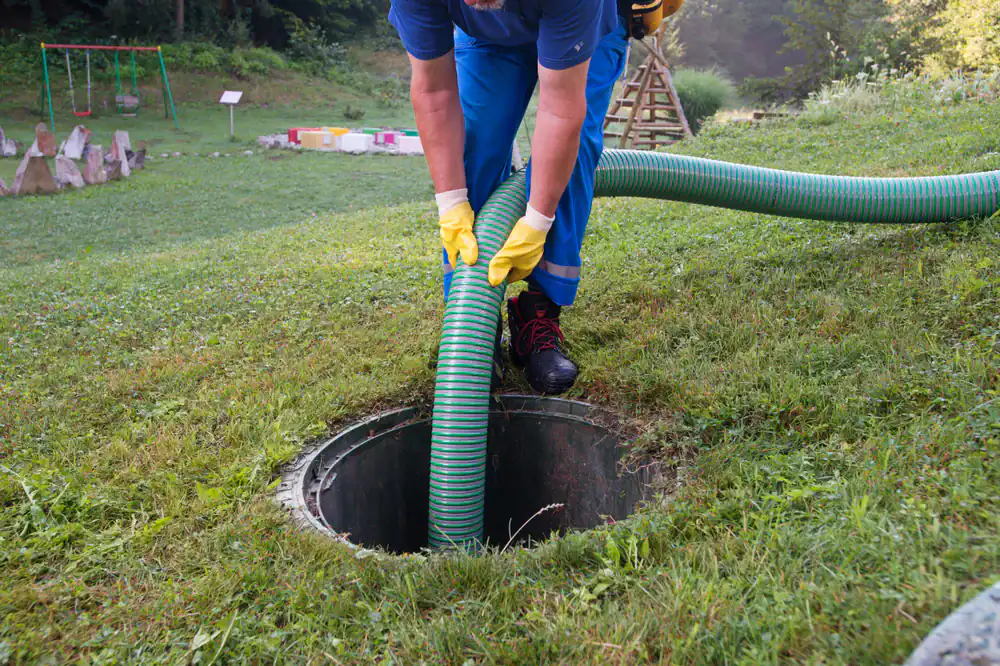
Our Reviews
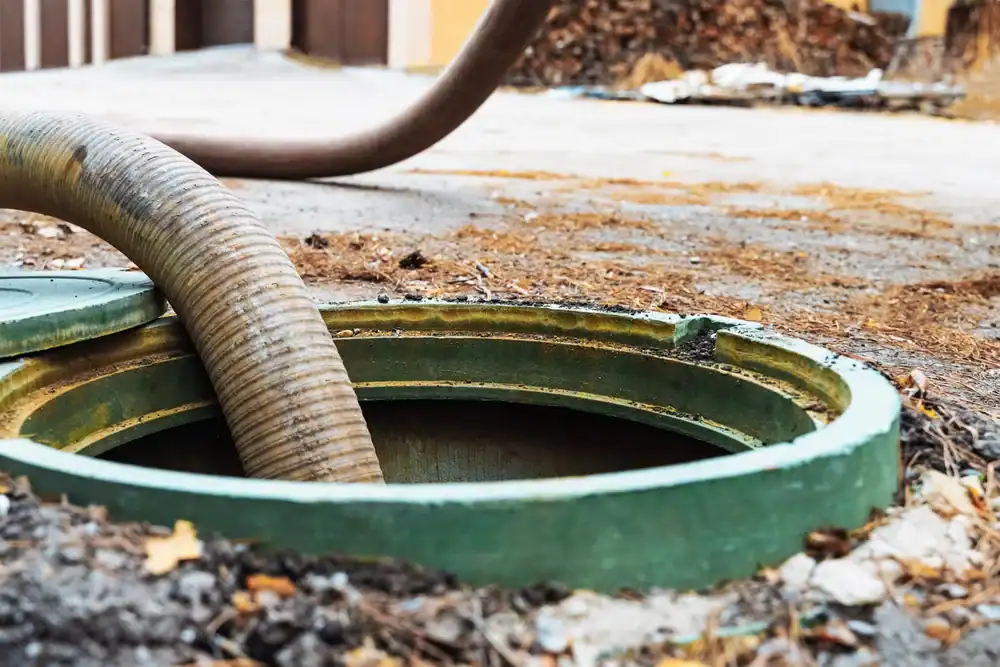
When your septic system works properly, you don’t think about it. That’s exactly how it should be.
Our professional septic tank cleaning removes years of accumulated sludge and scum that slowly choke your system. You get a septic system that drains efficiently, eliminates foul odors, and handles your household waste without backing up into your home.
Most importantly, you avoid the nightmare scenario every septic owner dreads: raw sewage backing up into your house during a family gathering or right before you’re trying to sell your home.
We’ve been serving Stony Island and the greater Chicago area for years, handling everything from routine septic tank pumping to emergency septic system repairs.
We’re licensed, bonded, and insured because septic work isn’t something you want to trust to fly-by-night operators. Our technicians understand the unique challenges of Chicago-area septic systems, from clay soil conditions to older system configurations common in established neighborhoods.
When you call us, you’re getting local expertise combined with professional-grade equipment and transparent pricing that won’t surprise you with hidden fees.
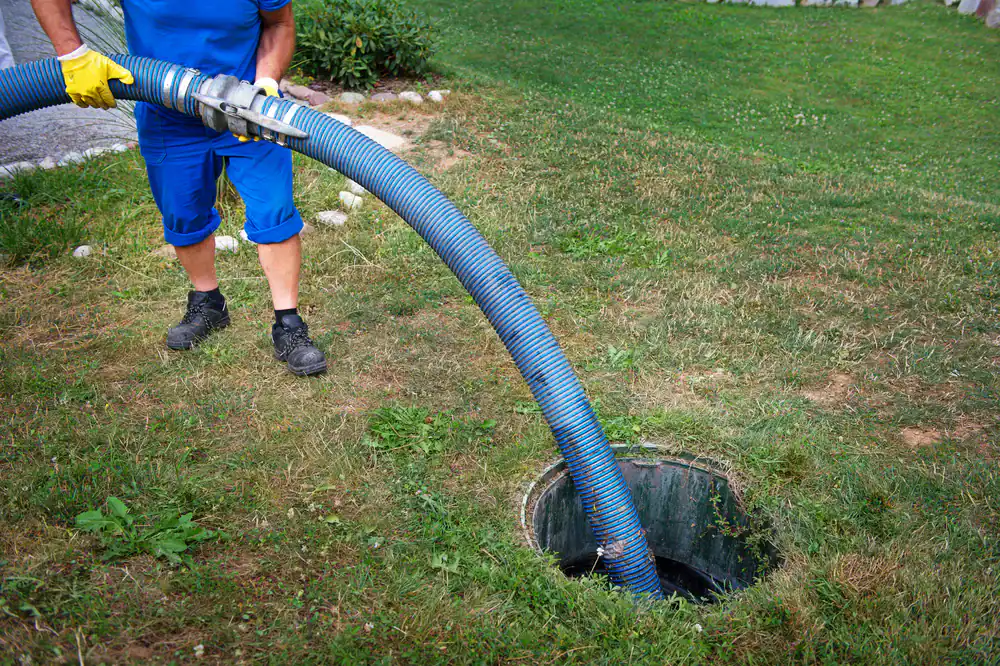
We start by locating and accessing your septic tank, then inspect the current sludge and scum levels to determine exactly what needs to be done. No guesswork, no overselling.
Our truck-mounted vacuum system removes all accumulated waste and sludge from your tank. We pump out liquid waste, break up and remove solid buildup, and clean the tank walls to restore proper function.
After pumping, we inspect your tank for any signs of damage or wear that could cause problems down the road. You get a clear explanation of your system’s condition and recommendations for maintaining optimal performance. The entire process typically takes 30-60 minutes, and we clean up completely before we leave.
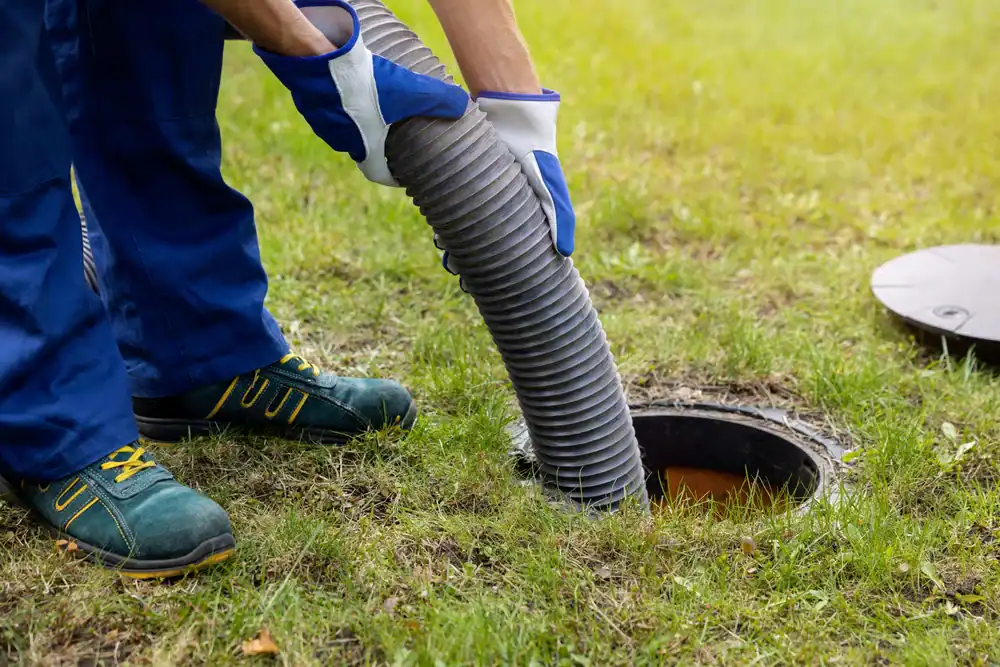
Ready to get started?
Our septic tank cleaning service includes complete waste removal, tank inspection, and system performance evaluation. We pump out all liquid waste, remove accumulated sludge, and break up scum layers that prevent proper drainage.
In Stony Island’s clay-heavy soil conditions, septic systems often work harder than in other areas. That’s why we also check your distribution box, inspect inlet and outlet baffles, and look for signs of system stress that could lead to expensive repairs if ignored.
You also get our honest assessment of your system’s condition and realistic recommendations for maintenance scheduling. Most residential septic tanks in this area need pumping every 3-5 years, but we base our recommendations on your actual usage and system condition, not arbitrary timelines.
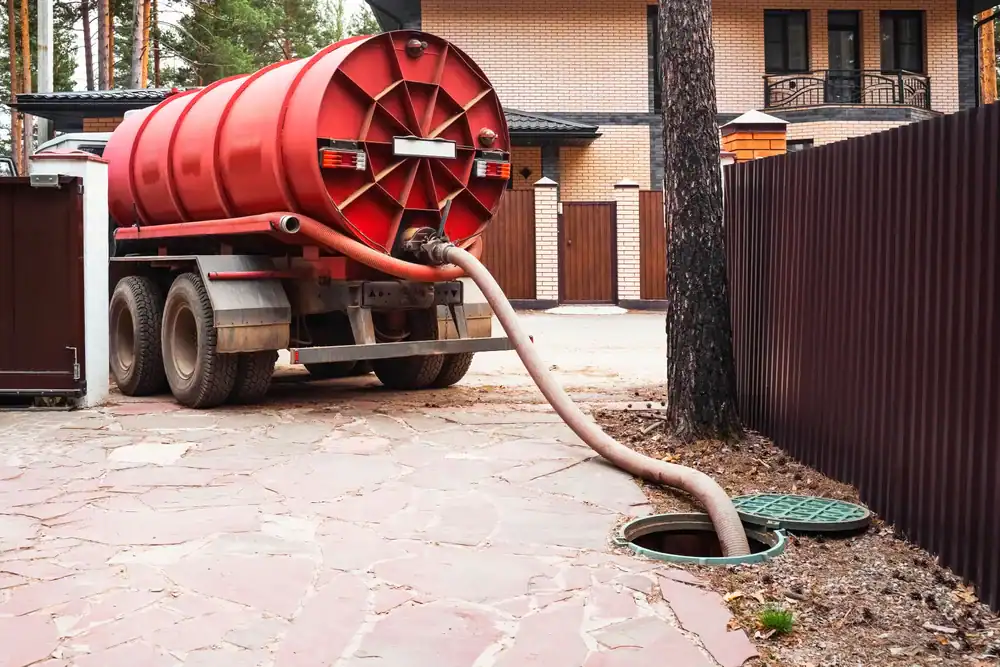
Most septic tanks in Stony Island need professional cleaning every 3-5 years, but the exact timing depends on your household size, water usage, and system age.
A family of four typically generates enough waste to require pumping every 3-4 years. Larger families or homes with garbage disposals may need service more frequently. Older systems or those showing signs of stress might need annual attention.
The best approach is having your tank inspected during cleaning so we can recommend the right schedule for your specific situation. Waiting too long between cleanings can cause solids to build up and clog your drain field, leading to expensive repairs that cost thousands more than regular maintenance.
Skipping regular septic tank pumping leads to solid waste buildup that eventually clogs your entire system and can cause sewage to back up into your home.
When sludge levels get too high, solids start flowing into your drain field where they don’t belong. This clogs the soil’s ability to filter wastewater, causing wet spots in your yard, foul odors, and eventually complete system failure.
Once your drain field fails, you’re looking at repairs that can cost $10,000-$20,000 or more. Regular pumping every 3-5 years typically costs a few hundred dollars and prevents these expensive disasters. It’s the difference between routine maintenance and major system replacement.
Warning signs include slow drains throughout your house, gurgling sounds from toilets or drains, sewage odors in your yard, or wet spots over your drain field area.
If you can’t remember the last time your tank was pumped, or if it’s been more than 5 years, it’s definitely time for service. Don’t wait for obvious problems – by the time you notice issues, your system may already be stressed or damaged.
The smart approach is scheduling regular inspections every 3-4 years. We can check sludge levels and determine if pumping is needed, often catching problems before they become expensive emergencies. Prevention costs much less than repairs.
Septic additives cannot replace regular pumping and may actually harm your system by breaking down solids that should stay in the tank.
Your septic tank is designed to separate solids from liquids. Solids are supposed to stay in the tank where bacteria break them down slowly. Additives that claim to “eliminate pumping” often break down solids too quickly, sending them into your drain field where they cause clogs.
Some additives can also kill the beneficial bacteria your system needs to function properly. The only way to remove accumulated sludge is physical pumping. Any company or product claiming otherwise is selling you something that could damage your expensive septic system.
Professional septic tank cleaning involves locating your tank, removing the access cover, pumping out all waste and liquids, and inspecting the tank condition.
We use truck-mounted vacuum equipment to remove everything from your tank, including liquid waste, sludge, and scum layers. The process typically takes 30-60 minutes depending on tank size and waste levels.
After pumping, we inspect your tank walls, baffles, and connections for damage or wear. You’ll get a clear explanation of your system’s condition and honest recommendations for maintenance or repairs. We also clean up completely and restore your tank access cover properly.
Septic tank pumping in Stony Island typically costs $300-$500 for standard residential tanks, depending on tank size, access difficulty, and waste levels.
Factors affecting cost include tank size (larger tanks cost more to pump), how long since the last cleaning (heavily loaded tanks take longer), and access conditions. Tanks that are hard to locate or access may involve additional time and equipment.
We provide upfront pricing before starting work, so you know exactly what you’ll pay. Emergency service may involve additional charges, but routine scheduled cleaning is straightforward and affordable. Regular maintenance costs much less than emergency repairs or system replacement.